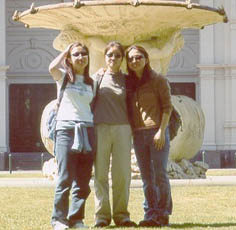Aussies more comfortable with their virtual personas rather than their true selves
 Melbourne, Dec 1: A new research has suggested that with the advent of web and social networking sites, people in Australia are more comfortable with their virtual persona rather than their true self.
Melbourne, Dec 1: A new research has suggested that with the advent of web and social networking sites, people in Australia are more comfortable with their virtual persona rather than their true self.
Symantec's Identity Survey, conducted by Woolcott Research, found Australians typically had more than 10 virtual identities.
Profiles on sites like MySpace and YouTube, email accounts, game avatars and characters in virtual worlds were included in the survey.
"This is what we used to call multiple personality disorder," Theage.com.au quoted Andrew Fuller, a clinical psychologist and fellow of the University of Melbourne's Department of Psychiatry, as saying.
Out of the 596 respondents, one in five felt their online identities were closer to their "true self" than their real-world identity.
After narrowing down the results to "power users" of social networking sites, dating sites, virtual worlds or gaming sites, the figure jumped to 40 per cent.
According to Fuller, online interaction had given rise to a generation of Australians who were more comfortable with their online personas then their true self. In fact, many are defining themselves through their virtual identities.
"Basically people are saying that this online identity that I've carved out for myself may be more expressive and reflective of who I am as a person than the person I show to people face-to-face," Fuller said.
"That's not necessarily a bad thing - people often have an unlived life they don't often express ... perhaps what's happening is an unleashing of that hidden self."
While experimenting with different types of identities online, people are exposing themselves to privacy and personal security risks.
It was found that two-thirds of Australians were more open to share personal information with other people on the internet than they would in person.
Just over half of Australians published three or more types of personal information on blogs, social networking sites or online shopping sites, while a third published their home address and two thirds revealed their real name.
Symantec said that it would be easier for criminals to use information found in online profiles to commit fraud in the real-world ("identity theft"), or for social engineering.
Two-thirds of respondents post personal information online without thinking through the possible consequences.
"Despite being aware of and sensitive to the risks of identity theft online, when they [Australians] go online it's as if those concerns go out the window," Fuller said.
However, social networking is not just about enjoying deep and powerful internet relationships, Fuller said his practice had also seen a recent influx of kids who had become distressed from online bullying.
He said, cyber bullying-"somebody pretending to be you or creating a website about you or posting unfortunate comments" - had gone from zero to virtually a fifth of his clinical practice
"It was only a couple of years ago we were saying to people don't meet somebody you've just met online," Fuller said.
"Nowadays, if you said that to somebody as a psychologist, they would just laugh at you." (ANI)